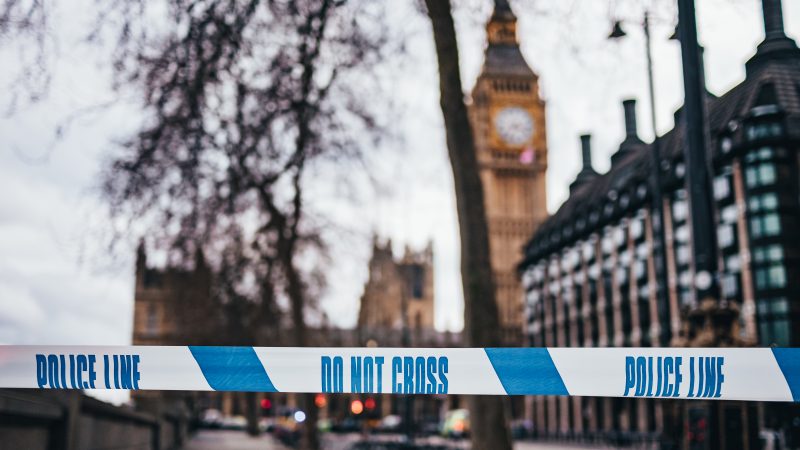
Leader Keir Starmer has agreed at the last minute that the Labour Party should vote against the police, crime, sentencing and courts bill due to be debated in parliament this week. But alarmingly his original position was that Labour MPs should abstain, although everyone knew that the bill was really about cracking down on peaceful protest. In particular, Tory MPs had been upset by the successful peaceful protests led by organisations like environmental campaign group Extinction Rebellion.
Abstaining on a human rights matter like this is a nonsense. Labour ought to know where it stands on this type of issue. But sadly it has been clear for some time that Keir and his advisers take the view that there is almost nothing the Tories can bring forward on policing or security that they are prepared to oppose. They are not concerned about the intrinsic merit of any legislation. Their main issue is that they are convinced that, by moving right on policing, security and human rights, they can lure “Red Wall” voters back into the arms of the Labour Party.
So Labour in parliament has abstained on a series of human rights issues. The first example of this was the overseas operations bill. This legislation was designed to make it even harder to prosecute crimes committed by British soldiers. It was an attempt to put our soldiers above the law. And it would have effectively decriminalised torture.
It wasn’t just left-wing Labour MPs who thought these things. Field Marshal Lord Guthrie, former chief of the defence staff, expressed his dismay that the bill would let “torturers off the hook”. Michael Clarke, former director-general of the Royal United Services Institute, argued that the proposals “fly in the face of international legal norms”.
Elizabeth Wilmshurst, former deputy legal adviser at the Foreign and Commonwealth Office, suggests that the bill calls into question the UK’s commitment to a “rules-based international system”. And almost a dozen United Nations human rights special rapporteurs and experts said the bill would violate the “UK’s obligations under international humanitarian law, human rights law and international criminal law”.
But Keir was unmoved by the views of actual army generals on this legislation, and he insisted that Labour MPs abstain at second reading. Many of us rebelled and voted against it anyway, but the Labour Party should not have been abstaining in the first place.
More recently, there was the ‘spycops’ bill. Its official title was the covert human intelligence sources (criminal conduct) bill. It will give a host of state agencies, including the police and the security services, the power to licence its agents and officers to commit grave crimes in advance, even here in the United Kingdom.
Police spies have abused innocent campaigners in the UK for decades – ranging from environmental activists to trade unions and race equality campaigners. Undercover police infiltrated the grieving family of the murdered black teenager, Stephen Lawrence, during their quest for justice. Even former Tory Prime Minister David Cameron found they were responsible for “shocking levels of state collusion” in the murder of lawyer Pat Finucane in Northern Ireland.
But, despite the fact that some his own Labour MPs and a number of trade unions had been the victims of undercover policing, Keir insisted that Labour MPs abstain on the legislation, at both second and third reading. Again, some of us rebelled, but the bill passed through the House of Commons with tacit Labour support.
This week, the government wanted to debate their police, crime, sentencing and courts bill. Keir Starmer wanted to abstain on it. The campaign group Liberty summed up the problems with the legislation when it said: “These plans are a staggering assault on our right to protest as well as an attack on other fundamental rights. Police already have extensive powers to restrict protests, and frequently go beyond them even though it is their duty to facilitate the exercise of this right. The proposals in the policing bill are an opportunistic bid from the government to permanently erode our rights.”
Once again, Keir Starmer was unmoved by the arguments of human rights campaigners. But at the weekend women campaigning on violence against women wanted to hold a peaceful vigil in Clapham Common near where the murder victim Sarah Everard was last seen alive. The local Lambeth police, who understood how strongly people felt about Sarah’s death, were prepared to work with campaigners and facilitate a peaceful socially distanced vigil. But Scotland Yard, led by Cressida Dick, insisted on banning any gathering at all. Predictably, people came to the vigil anyway.
The resultant images of male police officers manhandling and handcuffing women, who were actually on a peaceful vigil about male violence, horrified the public. It also demonstrated that police had plenty of powers to deal with peaceful protest. The real issue was stopping the police abuse of existing powers. In this context, even the leadership realised that abstaining on legislation designed to give the police even more powers to crack down on peaceful protest was simply not sustainable.
I am glad we are actually voting against this legislation. But I will be even more glad if Labour stops abstaining on these issues and begins to restate the case to our supporters for justice, civil liberties and human rights.




More from LabourList
Nudification apps facilitate digital sexual assault – and they should be banned
Diane Abbott suspended from Labour after defending racism comments
Labour campaign groups join forces to call for reinstatement of MPs